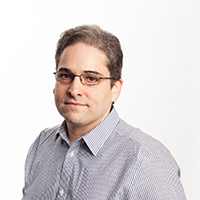This course is for 2024/25 entry.
Data Science Apprenticeship MSc Course overview
Benefits of this course
The benefits of this course are many and varied. You will build knowledge of the data science field, explore data visualisation and focus on machine learning, as this is of high value to employers within the sector.
You will also have access to our world-leading centre for data visualisation where you’ll be exposed to the latest developments on presenting and communicating your data analysis – a highly sought-after skill.
Award
You can select to apply for one of the available exit points for this course.
- Master of Science (MSc)
Who is this course for?
This course is an apprenticeship, and to apply you must be employed at a company that supports your enrolment on the scheme, or you’ve received a job offer with a firm that wishes to employ you as an apprentice.
You should have a curiosity and interest in data with a strong desire to learn new techniques to boost your career.
Your course includes some complex programming tasks so it’s likely you’ll come from a professional background that requires good numeracy and enjoy working with algorithms.
Structure
Master of Science (MSc)
Duration:
- Part-time: 27 months (up to 30 months)
Modules:
- Core modules: 8
8 core modules plus dissertation
Modules
Students take the course part-time, with half the modules during Term 1 and 2 in the first year, and half in the second year. You will need to attend one day a week. Teaching is during the day (09:00 to 18:00).
You then complete your individual project over 6 months (Jul-Dec), within the 27-month period of the degree. This assumes you pass all the modules. At the end of the MSc component you will complete an end point assessment, based on work-based assessments and project to fulfil the requirements of the level 7 apprenticeship qualification.
Core modules
-
Principles of Data Science (15 credits)
Data science (DS) deals with the extraction of insight from large collections of data. This module provides the foundation to other modules, with an emphasis on the DS process. You will explore main challenges, knowledge representation and inference material needed for DS.
-
Machine Learning (15 credits)
This module introduces you to modern machine learning methods and techniques that are used in large datasets. You will explore these techniques that are used in diverse applications such as graph mining and link analysis, and multimodal signal processing.
-
Big Data (15 credits)
In this module you will learn methods and tool for capturing, curating, searching, and analysing large amounts of data. You will learn about data acquisition and gathering, data cleansing and integration and techniques for extracting information.
-
Visual Analytics (15 credits)
This module introduces Visual Analytics as the science of human-computer data analysis. You will explore the principles of effective division of labour between the human and the computer and the role of interactive visual displays in supporting human analysts in analytical work.
-
Neural Computing (15 credits)
This module introduces and evaluates a range of established and cutting-edge, data-driven Neural Networks techniques and evaluation methods that can either be used in isolation or integrated with symbolic AI and Machine Learning in a number of application domains
-
Research Methods and Professional Issues (15 credits)
This module aims to equip you with a theoretical understanding of research methods, practical skills in carrying out research, design, evaluation and dissemination, and an awareness of the professional contexts within which research is used.
-
Executive Development (15 credits)
This module is designed to develop your ability to meet the challenges in senior IT roles in terms of personal strategies and skills for success in a professional IT environment. The focus will be on building personal knowledge and capabilities to enhance your impact in the workplace.
-
Project Management (15 credits)
This module aims: to provide you with an understanding of the major concepts and methods involved in project management; to develop your appreciation of and competence in the skills required; to provide you with a taster session using project management software.
Dissertation
-
Work Based Individual Project (60 credits)
This module is a self-directed study, which offers you the opportunity to clearly identify a problem or requirement, justify why it is worth exploring or implementing, develop a method suitable for the work, apply this method, analyse the results and evaluate their implications.
Programme specification
The programme specification contains more information on how the course is organised, the requirements for progression for each part and credits required for awards.
Download course specification:
Teaching and assessment
You will learn through a series of lectures, tutorials and practical sessions helping you to increase your specialist knowledge and autonomy.
Working alongside our research-active lecturers, with their cutting- edge knowledge in machine learning, data visualisation, and high-performance computing, you’ll be exposed to current industry developments and be given the opportunity to complete an individual project across these areas.
The hands-on, laboratory-based tutorials and the use of data science tools and technologies will equip you in the skills you need to pursue a work-based project which will benefit your employer.
You will have the opportunity to specialise in an application area of data science, from health to retail, and by engaging with researchers and industrial partners throughout your course you’ll develop your scientific knowledge and skills in each of the core areas.
You’ll also have access to online training resources including MATLAB’s MathWorks and DataCamp.
Alongside modules we also recommend students start learning Python as it is the programming language they will use at the start of the programme.
At the end of the MSc component you will complete an end point assessment, based on work-based assessments and project to fulfil the requirements of the level 7 apprenticeship qualification.
Fees and funding
Fees for academic year 2024/25
Master of Science
(MSc)
Part-time
(full course fees)
Home/UK: £21,000
Part-time (full course fees)
Home/UK: £21,000
Where applicable, tuition fees for City's programmes will be subject to inflationary increases in each year of study. Our policy for these increases is set out in our terms and conditions of study.
Apprenticeship levy
The course is funded under the apprenticeship levy scheme.
Larger employers: companies with an annual payroll of £3m+, and therefore liable to pay the apprenticeship levy from May 2017, will be able to fund up to 100% of a degree apprentice’s tuition costs from their levy contribution.
Smaller employers: can claim 95% of the degree apprenticeship costs from the government, leaving them to pay only 5% themselves.
Additional expenses
Some of our degrees may involve additional expenses which are not covered by your tuition fees. Find out more about additional expenses.
Career
This unique Data Science Apprenticeship MSc will help you add value to your company through both your technical and leadership skills.
You’ll be able to expand your company’s data science capability as well as becoming a leader in the data science field, managing large scale projects and providing high level strategy and direction.
From health to retail, and from the IT industry to government, this Data Science MSc will prepare you for a successful career as a data scientist.
You will graduate with specialist skills in data acquisition, information extraction, aggregation and representation, data analysis, knowledge extraction and explanation, which are in high demand.
How to apply
Entry requirements
UK
You should have a UK first or an upper second-class honours degree (or equivalent) in a subject area such as computing, mathematics, physics, engineering, information science, economics, or a related discipline with mathematical and computational content.
We will also accept applicants with degrees in business, economics, psychology and health, if they demonstrate some statistical, mathematical and computer scripting aptitude, e.g. by referring to qualifications, courses and experience.
We may accept a lower class degree with relevant work experience, but this is at our discretion. We recommend your personal statement explains why you are interested in Data Science, points to relevant experience and indicates which particular aspects of our course interest you.
You will require:
- Level 2 qualification in English and Mathematics (usually GCSE)
- Employment within an organisation that support your enrolment in the degree as part of your Digital and Technology Solutions Specialist (Data Analytics Specialist) training.
You must be a UK or EU national with the right to work in the UK. The Apprenticeship Levy covers roles in organisations in England.
English language requirements
If you are an applicant whose first language is not English, the following qualifications are required:
- IELTS: 6.5 (minimum of 6.0 in all four components)
- TOEFL 92 (minimum of 20 in Listening, Reading and Speaking, and 22 in Writing)
For information about the various English Language tests City accepts please see the English language requirements.
English language programmes
Don't meet the English language requirements? INTO City, University of London offers English language programmes to help prepare you for study at university. These intensive and flexible courses are designed to improve your English ability for entry to degree courses.
Application process
You will be expected to submit the following:
- For all applicants, please upload your degree certificate and transcript of marks from your first degree (if you do not have your final results at the time of making your application, please upload a provisional certificate/interim transcript of marks). A transcript is required in order to have your application processed.
- If your first language is not English, or you require a Student Visa to study in the UK, please upload a Proof of English Proficiency if you have already obtained it. A list of accepted qualifications can be found on our entry requirements page.
- Please upload a detailed personal statement outlining why you wish to study this specific course, at City, University of London, as well as explaining how your past studies have prepared you for this course and how it will help you to progress in your career. If you require a Student Visa, please note that the quality of your personal statement will be taken into account by the visa issuing authorities when deciding whether to grant you a student visa or not.
- If you are applying for a part-time course, or have relevant work experience relating to the degree you are applying for, please upload a copy of your current CV/resume.
Please note: Academic references are not required when you submit your application. However, the admissions tutor may request them at a later date to help make a decision on your application.
The application deadline for this course is 31 August 2024, however we may close earlier if all places are filled.
Further information about this apprenticeship
If you would like more information about this programme, please contact our STEM Apprenticeship team.
September 2024 entry
Contact the postgraduate team
Telephone: 020 7040 8877
Email: sstpgtadmissions@city.ac.uk
Our academics
Your studies are supported by a team of committed and enthusiastic teachers and researchers, experts in their chosen field. On occasion we also work with external professionals to enhance your learning and appreciation of the wider subject.
Our students
Ask a student
Want to find out more about student life? Chat with our student ambassadors and ask any question you have
Student testimonials
Housing and student life
-

Accommodation and housing
We offer accommodation options and support for all postgraduate students. Our dedicated Accommodation Service can help you to find private accommodation in London if required.
-

Student wellbeing
Our extensive support network spans from learning support and disability support through to counselling, financial advice and career advice. Please do tell us if you need our help.
-

Living in London
We are based in the heart of one of the most vibrant and colourful cities in the world. London offers a rich variety of cultural experiences far beyond your studies.





